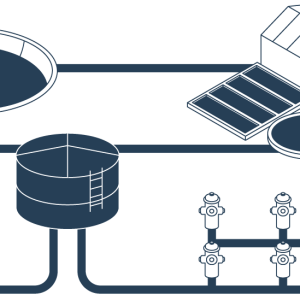
RAMALLAH, West Bank — When Dania Hanatsheh was released from an Israeli jail this week and dropped off by bus into a sea of jubilant Palestinians in Ramallah, it was an uncomfortable déjà vu.
After nearly five months of detention, it was the second time the 22-year-old woman had been freed as part of a deal between Israel and Hamas to pause the war in Gaza.
Hanatsheh’s elation at being free again is tinged with sadness about the devastation in Gaza, she said, as well as uncertainty about whether she could be detained in the future — a common feeling in her community.
“Palestinian families are prepared to be arrested at any moment,” said Hanatsheh, one of 90 women and teenagers released by Israel during the first phase of the ceasefire deal. “You feel helpless like you can’t do anything to protect yourself.”
Nearly 2,000 Palestinian prisoners are to be released as part of a deal to halt the fighting for six weeks, free 33 hostages from Gaza, and increase fuel and aid deliveries to the territory. Many of the prisoners to be released have been detained for infractions such as throwing stones or Molotov cocktails, while others are convicted of killing Israelis.
Hanatsheh was first arrested in November 2023, just weeks into the war triggered by Hamas’ deadly attack on Israel. She was freed days later during a weeklong ceasefire in which hundreds of Palestinians were released in exchange for nearly half of the roughly 250 hostages Hamas and others dragged into Gaza.
She was detained again in August, when Israeli troops burst through her door, using an explosive, she said.
“Supporting terror”
On neither occasion was she told why she’d been arrested, she said. A list maintained by Israel’s justice ministry says Hanatsheh was detained for “supporting terror,” although she was never charged or given a trial and doesn’t belong to any militant group.
Her story resonates across Palestinian society, where nearly every family — in Gaza, the West Bank and east Jerusalem — has a relative who has spent time in an Israeli jail. This has left scars on generations of families, leaving fewer breadwinners and forcing children to grow up without one or both parents for long stretches.
Since the start of the war 15 months ago, the number of Palestinians in Israeli jails has doubled to more than 10,000, a figure that includes detainees from Gaza, and several thousand arrested in the West Bank and east Jerusalem, according to Hamoked, an Israeli legal group.
Many prisoners are never told why they were detained. Israel’s “administrative detention” policy allows it to jail people — as it did with Hanatsheh — based on secret evidence, without publicly charging them or ever holding a trial. Only intelligence officers or judges know the charges, said Amjad Abu Asab, head of the Detainees’ Parents Committee in Jerusalem. / AP






